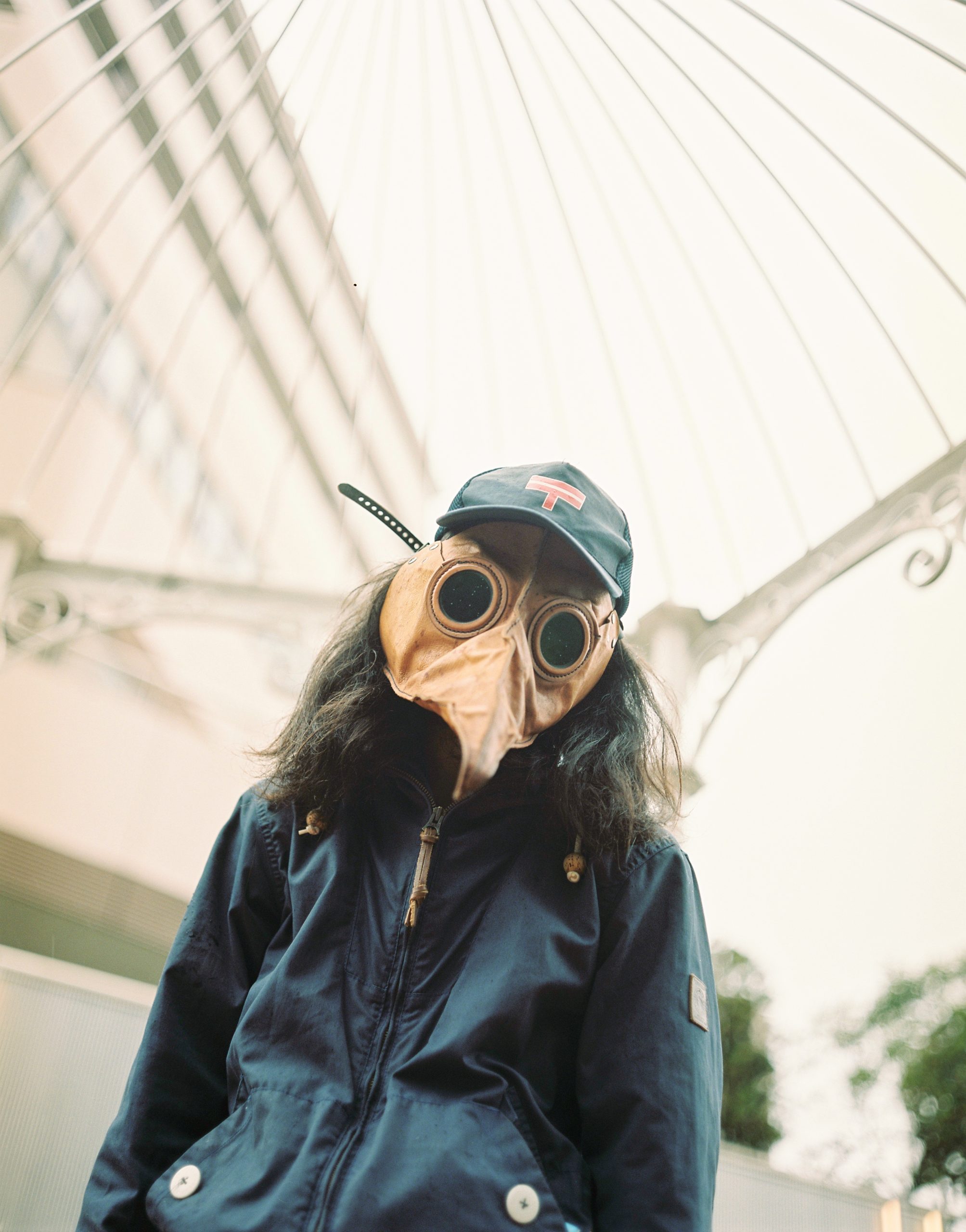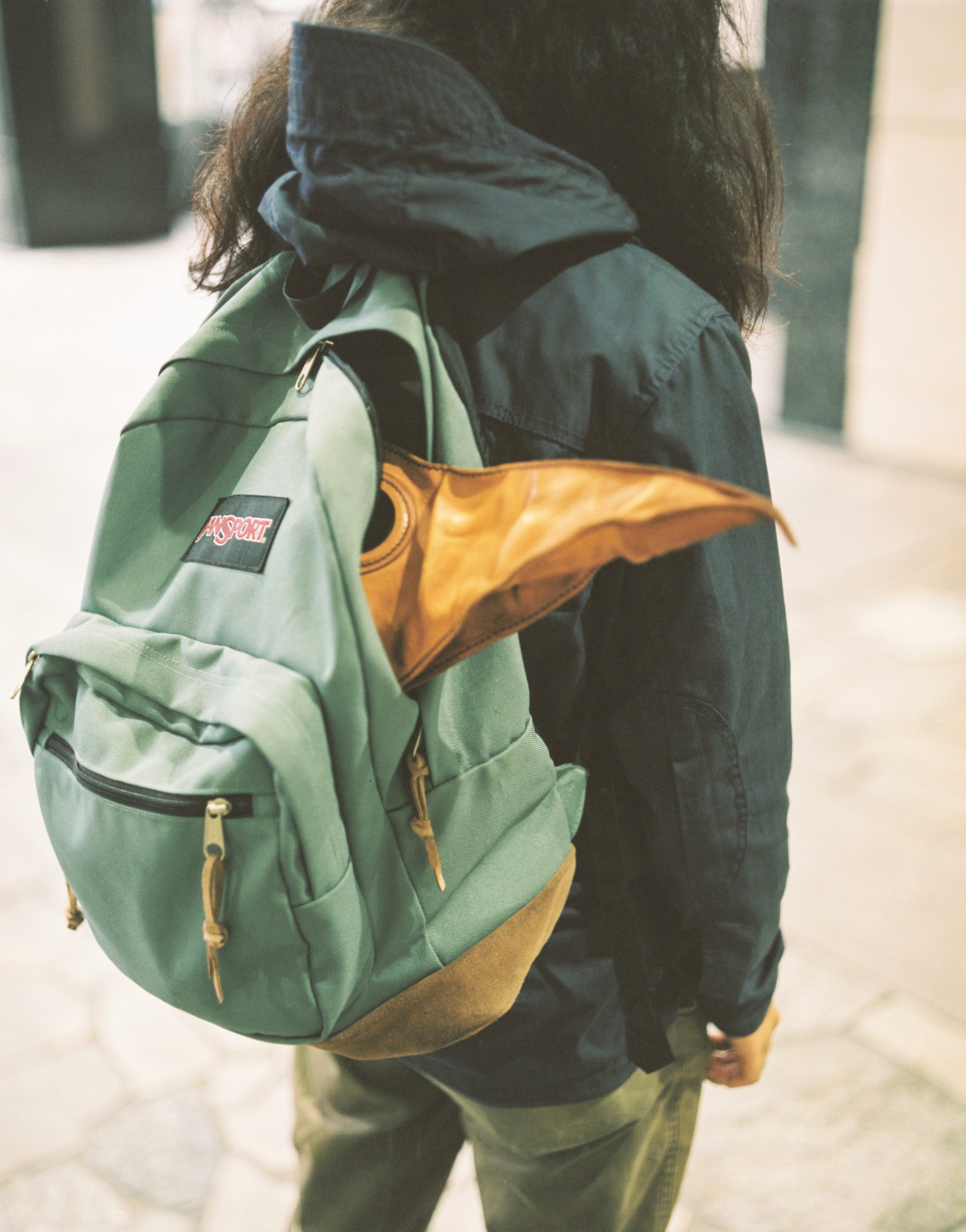Japanese singer-songwriter Jacob Tanaka has recently released his second solo album “Osaki Ni Dōzo” after two years and four months. He is also active as a member of “Yanushi,” “never young beach” and “Lucky Old Sun” as a supporting member, although he mainly focuses on his career as a home-recording singer-songwriter. His most recent album, in particular, skillfully displays his lively and evergreen melodies, directly tied to one of his biggest inspirations, the Beatles, along with lyrics that give off a sense of introspective loneliness and refined sound, fully exhibiting what a masterpiece of extraordinary talent this album is. In this interview, Jacob tells us about his personal history, his ethics as an independent and his personal stance regarding his music career.
――I understand that your father had a big influence on your love for music, so was your environment growing up musically privileged?
Jacob Tanaka: I think so. My dad loved music, so I listened to the music he played at home all the time. Mainly the Beatles, ELO (Electric Light Orchestra), XTC, and Carnation. The Beatles and all the other artists that influenced me were playing all the time.
――So, is this “genetically” Beatles-related music one of your first childhood memories, musically speaking?
Jacob: You could say so. It feels like my foundations for pop music were being established since I was little. The reason I started playing an instrument was that I fell in love with The Blue Hearts when I was in middle school.
――When did you start writing music by yourself?
Jacob: When I was in high school: I’ve always loved Quruli and strongly felt a connection to their songs and chord progressions; I’ve always thought there’s something very Japanese rooted in their music. I wanted to try expressing myself in that kind of way, so I started writing songs.
――Did you realize at that point that you might have a talent for composing music?
Jacob: I’ve never had that. The music made by the great pioneers of the past has the ability to “intoxicate,” captivate you, but I’ve always felt like my music doesn’t have that. It’s been around 3-4 years since I’ve been able to write songs that I am satisfied with to some extent.
――You’ve always said that you want to make the kind of music you’d want to listen to. Did you have that feeling since the beginning?
Jacob: That was my ideal, but I could never get close to that; it’s such a dilemma. That’s why I’ve made more than a hundred songs so far, but most of them I don’t like enough to release. Before releasing my first album “Oyu No Naka No Naifu (Knife in Hot Water)” in 2018, I made around 6 full albums, but I didn’t release them anywhere; I just handed them out to my friends (laughs). So the first album is actually the seventh album. After going through the process of mass-producing practice songs, I finally started making songs that are good enough for people to listen to.
――You formed the band “Yanushi” when you were in university, but you’re also continuing your solo career in parallel with the band to this day. I personally see you more as a solo, home-recording artist. One of the ways of existing as a musician may be playing your own songs in a band, expanding the world around you, but I see your true nature as one of deep self-introspection through home-recording by yourself.
Jacob: I’m really happy you’re saying that. I play in bands and act as a support guitar, but my roots are in home-recording, and I see myself as someone who produces by himself. I feel that this kind of introversion, or rather, individualization of the self, is similar to the way people listen to music. When I was in high school, I didn’t have a single friend, and I think all the other people were able to share their music with each other, but I just couldn’t, or rather, it was music that was really close to my heart; I’m still like this, and I want to keep being like this. Also, in high school, I was really into Ningen Isu. At the time, my everyday life was more gloomy than now, so I always felt like “it’s boring,” but listening to Ningen Isu would calm my spirit. I liked the things that I liked because I didn’t care if other people liked them or not. That’s why I see myself as more introverted than extroverted; because of those kinds of experiences.
――I remember you saying that you look down on people who bring their guitar case to school. I’ve always seen that as your own way to “spit” on society, to show that you’re independent, that you’re alternative. This kind of mentality is your foundation, but at the same time, your music is universal and doesn’t focus on one type of listener; I think that’s part of what makes you interesting.
Jacob: This “spitting on society” kind of mentality is still the same as when I was in high school, and I feel it’s actually aggravating, growing in a bad direction (laughs). However, it’s not big to the point of becoming a selling point, or rather, my mind is not strong enough to focus on that. That’s why this process of digesting these thoughts into the pop music that I like just naturally came to me.
――As you mentioned before, your new album “Osaki ni Dōzo” draws direct inspiration from the Beatles, or strictly speaking, it draws inspiration from bands like XTC and ELO, which themselves drew inspiration from the Beatles; thanks to that your lively, evergreen melodies stand out now more than ever. Especially the first song “Mimiko” and the last song “Boat” are incredibly bright and catchy; how did you compose them?
Jacob: When I’m composing music, there are times when I want something that is structurally aesthetic, and there are times when the song just intuitively pops out, and I understand its strength. The first and last song of the album just came out relatively smoothly. When that happens, I get worried that I accidentally plagiarized some other song, so I start comparing my track to the ones in my brain library, and I end up finding out it’s ok (laughs). For the first album, I would use more of my time for that, but recently I’ve been feeling more motivated to trust the melodies that come out intuitively. Maybe, I’m just more flexible now, and I can put more emphasis on those kinds of vibes.
――For example, the lyrics in “Undahosinouta (Song of the Infected Star),” say “even though I don’t want freedom, I can go anywhere, but I can’t go anywhere.” I thought this could be connected to the period of self-quarantine in which we have plenty of time but can’t go anywhere.
Jacob: I made this song before corona came, but I thought it could be interpreted like that too. I really don’t have any friends (laughs), so even on Saturdays and Sundays, nobody invites me anywhere, and I have nothing to do, so it’s like, I don’t need any freedom. So I’d say I am actually free, so if I wanted to go on a trip I could, and I’m working so I have money, I can do whatever I want, but I don’t want to do anything or go anywhere; I just wrote my feelings as they are.
――Was there any change in your music activities due to the corona pandemic?
Jacob: It doesn’t have any particular influence on production, but when I work alone at home, it often goes wrong, even though society is functioning normally; I feel this mental disassociation at all times. I often find myself thinking that everyone else is doing their best, and I’m not, so I get nervous. Honestly, I think that everyone should have a break from work, but when corona came, and everyone was forced to do so, that was wrong too. At the end of the day, it’s easier for me to be “stuck” in the middle of a functioning society.
――Do you mean it’s bad to be part of the majority?
Jacob: Maybe so. I realized that some songs come from the impatience of everyone else working.
――I heard that your job is separated from your music; do you feel like you don’t want music to become your main job?
Jacob: When it comes to work, It’s kind of like a guess, or rather, you have to provide music to those who are asking for it, and if it’s something that I don’t want to do, at the end of the day, I don’t want to do it. I don’t want to change my approach to making good music. That’s why being able to produce freely is more important to me than having music as a job.
――Last question: do you have any goals as a musician?
Jacob: I’ve never thought of myself as a musician or an artist. I’m just a person. When I’m working, I’m still myself, when I’m making music, I’m still myself, when I ride a motorbike, I’m still myself. I’d say I’m actively trying not to fit in any category or title. On the contrary, I feel very reluctant to say that I’m a musician. It’s because I’m kind of doing it as a hobby. I’m very grateful to be called a guitarist or musician because it’s convenient, but I could never say it myself. I want to be the kind of person who could be no one and anyone at the same time.
Jacob Tanaka
Jacob Tanaka is a multi-instrumentalist (guitar, bass, and drums) singer-songwriter who also handles recording, mixing, illustration, and video production. In 2018, he released his first album “Oyu No Naka No Naifu” from “TONOFON,” a label supervised by Shugo Tokumaru. In addition to his solo works, he also serves as the frontman of “Yanushi” and as a support guitarist for never young beach and Lucky Old Sun.
Photography Takuroh Toyama
Translation Leandro Di Rosa






